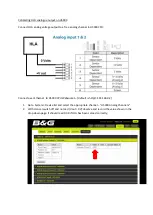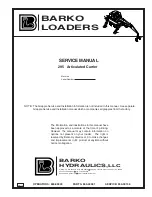
Compact Operating Instructions in accordance with EN 61010-1 and EN 60079-0
A5E45779389002-01, 09/2018
15
3.2.2
FM and CSA
The following table contains the instructions and requirements for use of gas analyzers certified in accordance with CSA and
FM guidelines in hazardous areas of Class 1, Division 2 and Class 1, Zone 2.
Require-
ment for
FM/CSA Class 1, Division 2
FM/CSA Class 1, Zone 2
Encapsula-
tion
Degree of protection IP65 of the gas analyzer meets all requirements; no additional measures are required
Cable con-
nections
Only the types of cables and wiring methods listed
below are approved for the installation:
1.
Type MI (Mineral Insulated),
type MC (Metal Clad),
type MV (Medium Voltage),
or
type TC (Tray Cable) with end connectors or cables
that are routed in cable tray systems in such a way
that tensile stress at the cable ends is reliably pre-
vented.
2.
Type ITC (Instrumentation Tray Cable) in cable
trays or cable channels, supported by communica-
tion cables. These require mechanical protection
and are routed openly or directly concealed at the
marked location.
3.
Type PLTC (Power Limited Tray Cable) in accord-
ance with the provisions of the National Electrical
Code, article 725 or the Canadian Electric Code,
rule 12-2202 or in cable tray systems.
4.
Encapsulated, sealed bus cables, encapsulated,
sealed connectors.
5.
Heavy-gauge pipe thread
6.
Steel pipe intermediate screwed joint
7.
Any connection method that is suitable for Class 1,
Division 1.
Only the types of cables and wiring methods listed
below are approved for the installation:
1.
Any connection method that is suitable for
Class 1, Division 2 (s. column on left).
2.
Any connection method that is suitable for
Class 1, Zone 1.
Combus-
tible gases
Measurements of combustible gases are only permitted with a device made of piping and an additional purge
gas monitoring (e.g. Siemens Minipurge, Order No. 7MB8000-1AA).
Explosive
gases
Measurements of gases/gas mixtures that are always explosive are not permitted. Measurements of gas-
es/gas mixtures that are rarely or temporarily explosive are only permitted with devices made of piping that
are provided with flame arrestors and have additional purge gas monitoring.
















































